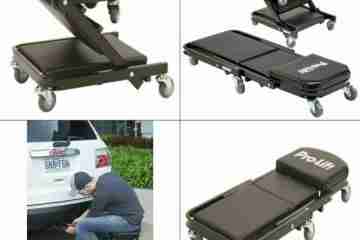Are Radar Detectors Legal in PA?

Are Radar Detectors Legal in PA?
Avoiding confrontations and dealings with police is generally a good idea. From potential tickets and fines to court fees and jail time – speeding can lead to significant financial hardships and potential criminal charges. While we never recommend speeding, it is a common practice and knowing how to keep yourself out of trouble is often important. Below, we take a look at the speeding laws in the state of Pennsylvania (PA), and whether or not using a radar detector there is a good idea.

Speeding in PA
PA has two types of speeding laws. Violating either of these laws can get you in trouble with the law.
Basic Speeding Law
The first, known as “basic speeding law” prohibits you from driving at speeds that are considered “greater than is reasonable and prudent”. Basic speeding law takes into account the existing conditions, in addition to the speed at which you were driving. In addition to your speed and the conditions, you must also be able to bring your vehicle to a complete stop “within the assured clear distance ahead.” What does this mean to you? Let’s take the speed of 55 miles per hour (mph) as an example. On a bright sunny day, if you are driving a well-maintained Toyota Corolla, 55 mph on an open highway would be considered safe. Driving the same car on the same roads at 55 mph in the middle of an ice or snow storm, however, would be considered unsafe.
This law is dictated by 75 Pa. Stat. and Cons. Stat. Ann. § 3361 (2017).
Absolute Limits
PA law does require all maximum speed limits to be clearly posted for drivers to see. As the name implies, there is a fixed speed limit that must be abided by. For your reference, however, here is a list of the mandatory speed limits:
- School Zones: 15 mph
- Residential Districts: 25 mph
- Urban Districts: 35 mph
- Freeways: 65 or 70 mph (speed will be clearly posted)
- All Other Roadways: 55 mph
The absolute limits law is stated in 75 Pa. Stat. and Cons. Stat. Ann. § 3362 (2017).
Penalties for Speeding in PA
For speed limits below 65 mph, the standard fine is $35. For every mile that goes beyond 5 mph over the speed limit, however, an additional $2 fine is added. For example, if you are in a 35 mph zone and are ticketed for driving 49 mph, your fine will come to $53. That is a base fine of $35 plus $2 per mile for every one over 40 mph.
For speed limits that are over 65 mph, however, the base fine is increased to $42.50, with the same $2 per mile that is more than 5 mph over the posted speed limit. For school zones, the fines get even bigger. If you are driving more than 11 mph over the speed limit in a school zone, fines can reach $500.
Reckless driving, lands you in even more trouble. Reckless driving occurs when an individual’s driving is considered so unsafe that it significantly increases the likelihood of an accident and they are aware of this risk, but disregard the potential consequence. For a first offense, PA typically finds your reckless driving to be a “summary offense”. Punishments for your first reckless driving offense include:
- Up to 90 days in jail;
- Fines up to $200; and
- License suspension for 6 months.
If your reckless driving does result in an accident or injury, the charge can be increased from a “summary offense” to “aggravated assault by vehicle”. As a third-degree felony, you do not want this on your record. A conviction for this charge can lead to up to 7 years in jail, $15,000 in fines, and a 1-year suspension of your license.
For more on PA speeding penalties, refer to:
- 75 Pa. Stat. and Cons. Stat. Ann. § § 3362, 3365 (2017)
- 75 Pa. Stat. and Cons. Stat. Ann. § § 1532, 3736 (2017)
How Does a Radar Detector Work?
Radar detectors are not new. However, they have become increasingly more sophisticated.
The concept of a radar detector is relatively simple. A police officer uses a specific radar frequency in order to identify your distance and rate of speed. This radar frequency emits a radio wave that is bounced back towards the device used to emit once it hits the target object, (There is some science to this. The radar device used by police, often referred to as a radar gun, is pointed towards a suspected vehicle. The radar gun emits a radio wave towards the vehicle. This wave, traveling at the speed of light, hits the target and is bounced back towards the radar gun. The radar gun determines the rate of speed based on the time it takes the radio wave to hit the vehicle and return.) Laser-speed guns are also being used to detect your speed.
Your radar detectors is able to identify a radar gun based on these standard radio waves. To ensure your radar detector is able to pick up any type of radar gun being used, it is set to a wide band of frequencies most often used by police.
A radar detector is not 100% accurate. However, it is one of the best ways to help detect the presence of police radar guns. If you speed, investing in a good radar detector can help you eliminate or reduce the chance of getting pulled over.
Where are Radar Detectors Legal?
To answer the most important question you have and the reason for reading this article, yes, radar detectors are legal in PA. However, there is a catch. In the state of PA, along with many other states for that matter, radar detector are only permitted to be used for passenger vehicles. Commercial vehicles, on the other hand, are prohibited from using them.
Legal to Use
Most states follow the same protocol set forth by PA regarding radar detectors. Passenger vehicles may use them; however, commercial vehicles cannot not. States that allow radar detectors are:
- Alabama (AL)
- Alaska (AK)
- Arizona (AZ)
- Arkansas (AR)
- California (CA)
- Colorado (CO)
- Connecticut (CT)
- Delaware (DE)
- Florida (FL)
- Georgia (GA)
- Hawaii (HI)
- Idaho (ID)
- Illinois (IL)
- Indiana (IN)
- Iowa (IA)
- Kansas (KS)
- Kentucky (KY)
- Louisiana (LA)
- Maine (ME)
- Maryland (MD)
- Massachusetts (MA)
- Michigan (MI)
- Minnesota (MN)
- Mississippi (MS)
- Missouri (MO)
- Montana (MT)
- Nebraska (NE)
- Nevada (NV)
- New Hampshire (NH)
- New Jersey (NJ)
- New Mexico (NM)
- New York (NY)
- North Carolina (NC)
- North Dakota (ND)
- Ohio (OH)
- Oklahoma (OK)
- Oregon (OR)
- Pennsylvania (PA)
- Rhode Island (RI)
- South Carolina (SC)
- South Dakota (SD)
- Tennessee (TN)
- Texas (TX)
- Utah (UT)
- Vermont (VT)
- Virginia (VA)
- Washington (WA)
- West Virginia (WV)
- Wisconsin (WI)
- Wyoming (WY)
Illegal to Use
For those who like to use radar detectors, the better question is “where are they illegal to use?” Well, we have that answer for you too!
- District of Columbia (DC)
- Virginia (VA)
That is it for the United States! Not only will you be ticketed for speeding in these locations, but you will also be ticketed and fined for the use of your radar detector too.













No Comment